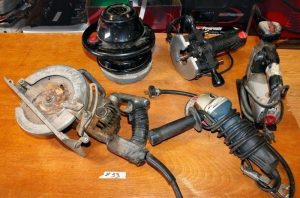Selling inherited real estate creates unique challenges for both the heirs and the executor of the estate. Not only are you dealing with the grieving process, but you now have to decide what to do with the property. If there are multiple siblings & heirs involved, selling your inherited home can become a difficult challenge.
But with a little foreknowledge and planning, you can make the transition smoother for everyone.
Take Inventory
In order to know the status of the estate, you’re going to need to take stock of all the assets and liabilities the estate is facing. Get pen and paper and list out the market value of the property and the liquid sellable contents like furniture, tools, collectibles, etc. You also need to know what liabilities you’re facing including taxes, liens, judgments, and creditors that must be made whole before liquidating any assets. Which brings us to our next point…
Bring in Professionals
You’ll need to get a professional appraisal of the property, as well as estimates for costs of any necessary repairs. We recommend contacting a real estate attorney, as well as a tax expert so that you know exactly what you’re facing. Be sure to hire a licensed appraiser to get the property valued. You’ll need to have this in place to sell the property, so do it right the first time.
Be Realistic
Liquidating a property at full market value is ideal. However, if there are big-ticket repairs that need to be performed before closing a traditional sale, they may be cost-prohibitive. If you’re trying to liquidate unimproved property, finding a motivated buyer that shares your vision for the future value of the land may take some time, or just not be feasible.
Liquidating Assets
Estate Sales

Power tools piled together for sale at auction
Definitely, an estate sale can help offset some of the costs, but the professionals you hired need to be paid, as well as any claims on the property such as taxes, judgments, and liens. Also, and I can speak from experience here, you won’t get fair market value for anything sold at an estate sale. I watched thousands of dollars of my grandfather’s tools and guns get piled into a lot and sold for pennies on the dollar. The people with cash at estate sales are usually professionals that run auction houses and thrift stores, and they only buy when there is a significant profit margin on a lot.
Collectibles
Collectibles are another matter, you may be able to get top dollar for them on sites like eBay, but there is the cost of your time to catalog and list the items, as well and correspondence with potential buyers. And some unscrupulous people will “buy” your collectibles and claim they never arrived, leaving you to fight it out with eBay or PayPal.
Deciding to Sell
Probate in Las Vegas
All estates in Las Vegas need to go through the probate process which determines the validity of the will and distributes the estate to the beneficiaries. The probate process usually lasts 120 days to 180 days. This allows the court to notify creditors and examine claims made against the estate.
There are ways to expedite the process by having the will’s executor petition the state to green light the sale under a procedure called “Summary Administration.” There are limits to the value of the estate that will qualify for fast-tracking the probate process, and most site-built homes in Las Vegas exceed the maximum allowed. Currently, only estates valued under $200,000 can take advantage of Summary Administration.
If there are siblings involved that have conflicting views on what to do with a property, the probate can be contentious and lengthy. Again, the professionals you hired to help you through this process can educate the group on what the tax liabilities for the property will be moving forward. You’ll know what repairs are critical before occupying the home. You’ll also have a good idea on the monthly upkeep costs including utilities, HOAs, etc.
Stubborn Hiers & Sibling(s)

Fighting over money
Sometimes you’ll have an heir or sibling that doesn’t want to sell but cannot afford to ‘buy-out’ the other beneficiaries. This is especially difficult if the other parties want to try to fix up the property and sell for full retail on the open market. In these cases, a leaseback agreement might be the perfect solution. When structured correctly, these contracts will cash out all beneficiaries then perform all necessary repairs to bring the property back into a rentable state. The party wishing to occupy the property can lock-in a lease they can live with and everyone is happy.
Other Options
Sometimes heirs are in a tough spot where there are significant repairs that need to be made before pursuing a traditional sale even after the estate sale. In this situation, they have to find a cash buyer because in order to get traditional financing, the house must be habitable and pass inspection. Unfortunately, a common mistake is to contact a real estate agent, who then connects them to a cash buyer, for a 6% commission. Pro tip: skip the real estate commission and go straight to the cash buyer. Get a fair deal for your inherited property and save yourself the costs of commission on the sale by selling direct.
Tax Implications
Luckily the tax burden for inherited homes in Las Vegas is pretty reasonable. As an heir, you’ll benefit from a “step up in basis”.
A step-up in basis is the readjustment of the value of an appreciated asset for tax purposes upon inheritance.
You’re basically charged long term capital gains on the value of the property at the time of sale MINUS the property value at the death of the owner. If you reside in another state, your local laws may be different. If for some reason the price of the property goes down between the original owner’s death and the final sale, you may be able to write it off as a loss, but there are maximums you may write off each year. Again, hire a professional.
Examples of Tax Liability from the Sale of Inherited Real Estate
Example 1: Suppose your parents bought the house for $50,000 and it’s now worth $300,000. Because you inherited the property, your basis is “stepped up” to the price at the time of passing ($300,000). So if you sell right away for $300,000, your tax liability is zero. You need to report this to the IRS as part of your income tax, even if you have no tax burden.
Example 2: Now suppose it takes several months to settle the affairs through probate court and the property appreciates in value to $350,000 at the time of sale. You and any other beneficiaries will need to pay long term capital gains on the $50,000 because your ‘stepped up basis” is only $300,000. Just be sure to hire a professional and report all transactions to the IRS as to avoid penalties and interest. This is one of the many reasons to encourage your loved ones to take the time to write a living will. Not only will the process be easier for the loved ones, but you’ll also avoid lengthy probate hearings that make it difficult to close out their affairs and focus on the healing process.
Asses Your Skills

Know the difference!
It may be tempting to take on many of the tasks associated with settling the estate of a loved one. Most professionals take pride in their ability to learn new skills quickly and solve problems. And yes, if you’re good with spreadsheets and handy with a computer, it can be tempting to try to unravel the books and accounting of the deceased.
If you’re good with tools and fixing things around the house, it is similarly tempting to try to fix up the property, cars, and other belongings to get top dollar.
Keeping busy may help keep your mind off the sorrow, but eventually, it may become a burden to the point of frustration. It may also delay emotionally processing the situation so you can begin to heal.
Just try to stick to your core skill set as much as possible and only take on a couple of projects rather than trying to do everything yourself. Because you need to…
Value Your Time
The time spent on closing the estate comes with costs. This is time that you are not attending to your own job, business, personal well-being, and family. You’re spending both mental and emotional energy trying to make everything perfect.
If you have a high powered job, you’re dollars ahead contracting out the work and focusing on what you know.
Even if you think you can’t afford the rates of professionals, keep in mind not every job will not go smoothly, especially if you’re not highly skilled at the task.
Suppose you decide to take on some home renovations to try to boost the property value. You demo a wall and the house collapses. Or you put in a new bathroom, and the inspector says it’s not to code. Now you have to rip it out and start over or hire a pro to come in and fix the mistake.
Again, your time has value, and so do your skills. Stepping out of your comfort zone during this vulnerable time means less time to spend on the things that provide for your family and bring you true joy.
What’s Important
It’s paramount to focus on what is important during this transition. Family. Health. Well-being.
Those are more important than trying to extract every last dollar from an estate. You’ll have more time to remember your love of the recently passed, and more time to share your love with your family. Those are the true treasures of life.

